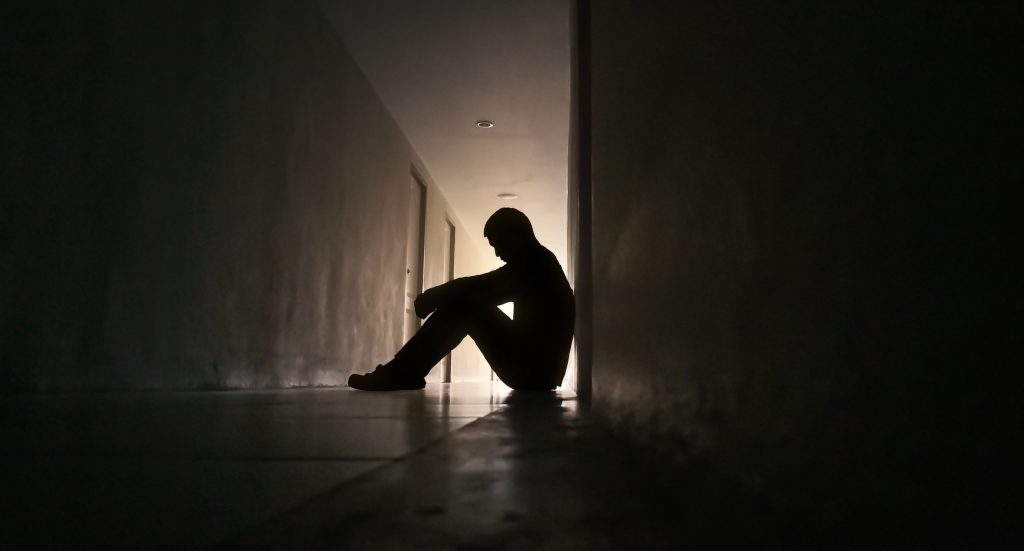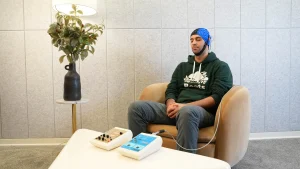Depression is a silent thief that steals your joy, energy, and hope. It can leave you feeling lost in a world that doesn’t understand the pain you’re going through. In this blog article, we’ll take you on a journey through the ups and downs of depression and show you how to come out on the other side. So buckle up and get ready for a ride that will change your perspective on life.
What Is Depression?
Depression is a complex and challenging mental health condition that affects millions of people worldwide. It can be a debilitating experience that drains the energy and joy out of life. It’s more than just feeling sad or blue; it’s a pervasive feeling of hopelessness and despair that can make even the simplest tasks seem impossible. According to the World Health Organization, more than 264 million people worldwide struggle with depression. In the United States alone, it’s estimated that 17.3 million adults have had at least one major depressive episode in their lifetime. Depression can affect anyone, regardless of age, gender, or background, and it can have a significant impact on every aspect of life.
The Darkness of Depression
Depression is often described as a feeling of darkness, a weight that seems to bear down on you with no relief in sight. It can make even the simplest tasks seem overwhelming and drain you of energy and motivation. Many people who struggle with depression feel like they are trapped in a never-ending cycle of despair, unable to see a way out. It’s a prolonged state of sadness, hopelessness, and emptiness that can affect all aspects of life. It can make it hard to sleep, eat, work, or enjoy the things you used to love. Depression can also make you feel isolated, alone, and misunderstood, which can worsen the symptoms.
Depression is often described as a feeling of darkness, a weight that seems to bear down on you with no relief in sight. It can make even the simplest tasks seem overwhelming and drain you of energy and motivation. Many people who struggle with depression feel like they are trapped in a never-ending cycle of despair, unable to see a way out.
There are many causes of depression, including genetics, trauma, stress, and chemical imbalances in the brain.
The Journey to Recovery
The journey to recovery from depression can be a winding and often challenging road. It’s a journey that requires patience, self-compassion, and a willingness to face the darkness head-on. But for those who are brave enough to take the first step, the rewards can be life-changing. Recovery is not just about overcoming depression; it’s about discovering a new way of living, one that is more mindful, resilient, and meaningful.
Here are some steps to take on the journey to recovery:
- Seek Professional Help: The first step in recovery is to seek professional help. A mental health professional can diagnose depression and create a treatment plan that suits your needs. They can also provide therapy, medication, or a combination of both.
- Adopt a Healthy Lifestyle: Depression can make it hard to take care of yourself, but adopting a healthy lifestyle can help you feel better. Eat a balanced diet, exercise regularly, and get enough sleep to boost your mood and energy levels.
- Build a Support System: Depression can make you feel isolated, but it’s essential to build a support system of family, friends, and professionals who can help you through tough times. Joining support groups can also provide a sense of community and belonging.
- Practice Self-Care: Depression can take a toll on your self-esteem, but practicing self-care can help you feel better about yourself. Engage in activities you enjoy, such as art, music, or sports. Practice mindfulness and relaxation techniques to reduce stress and anxiety.
Set Realistic Goals: Depression can make it hard to focus and feel motivated, but setting realistic goals can help you feel a sense of accomplishment. Start small and work your way up to bigger goals. Celebrate your successes, no matter how small they may be.

The Light at the End of the Tunnel
The light at the end of the tunnel is a symbol of hope, a beacon that shines in even the darkest of times. For those struggling with depression, it can be hard to imagine that there is any light at all. But the journey to recovery is all about finding that light and using it to guide you out of the darkness.
The light at the end of the tunnel represents a sense of possibility, a belief that things can and will get better. It’s a reminder that no matter how hopeless things may seem, there is always a way forward. Recovery from depression is not a quick fix, but rather a process of slowly building new habits and patterns that promote wellness and healing. It takes time, patience, and a willingness to confront difficult emotions and situations.
But as you move through the journey, you’ll start to see glimmers of that light shining brighter and brighter. You’ll begin to feel more in control of your life, more capable of handling the challenges that come your way. You’ll start to notice the small victories, the moments of joy and connection that make life worth living.
Real-Life example
In an interview with The New York Times, Reynolds spoke about how he had been dealing with anxiety since childhood, and how it had escalated into depression in his early 20s.
Reynolds described feeling as though he was constantly “on the verge of a nervous breakdown,” and how he struggled to cope with the pressure of being in the public eye. He said, “When anxiety and depression is telling me everything’s wrong, it’s hard to know what’s actually right.”
Reynolds eventually sought help from a therapist and began practicing mindfulness and meditation to manage his symptoms. He also spoke out about his experiences to help reduce the stigma around mental health issues. Reynolds is a strong advocate for mental health awareness and has encouraged others to seek help if they are struggling with depression or anxiety.
A few famous personalities who has suffered with depression and sought help are:
- Winston Churchill: The former British Prime Minister
- Mike Tyson: The former heavyweight boxing champion
- Margaret Trudeau: The former First Lady of Canada
- Lady Gaga.
- Dwayne “The Rock” Johnson
Conclusion:
Depression is a challenging and often debilitating illness that can leave individuals feeling lost and alone. However, seeking help is a powerful step toward finding the light at the end of the tunnel. As we’ve seen from the examples of famous personalities who have suffered from depression, seeking treatment and support can lead to a path of healing and recovery. It’s essential to know that depression is treatable, and with the right help and resources, individuals can find their way back to the light. Whether it’s through therapy, medication, lifestyle changes, or a combination of these approaches, there is hope for those who are struggling. The journey to recovery may not be easy, but it’s a journey worth taking. Remember, you are not alone, and there is always a way to move beyond the darkness of depression and back to the light.
Transcranial Magnetic Stimulation (TMS) is an FDA-approved treatment for depression that has been shown to be effective in a significant number of people who have not responded to traditional antidepressant medication or psychotherapy.
Elumind Centres for Brain Excellence is an integrated mental health centre offering solutions that can help you with your mental/brain health needs. To start your journey, book your FREE 15-MINUTE PHONE CONSULTATION. We are here for you.








